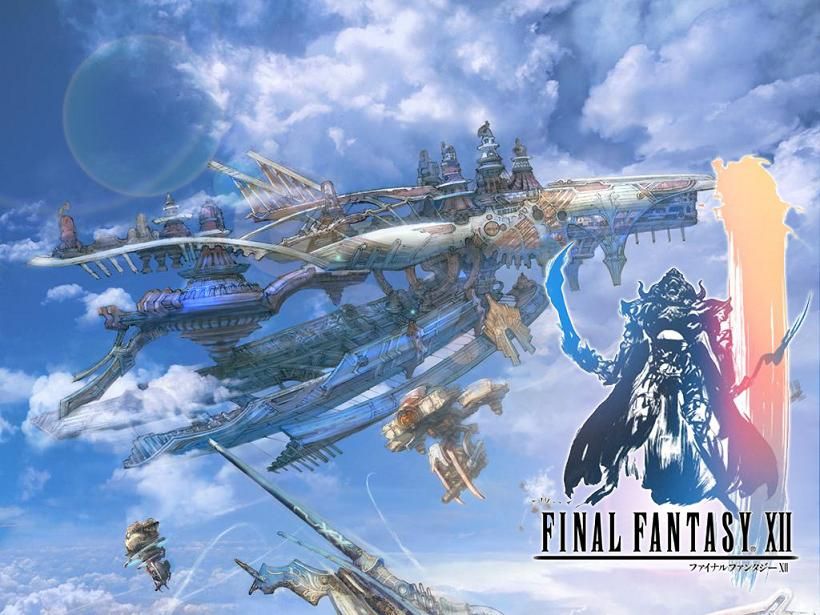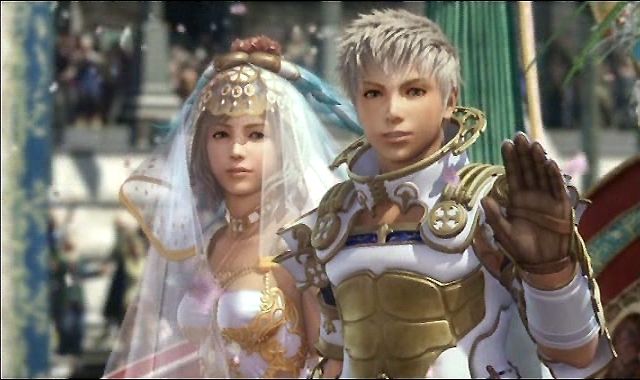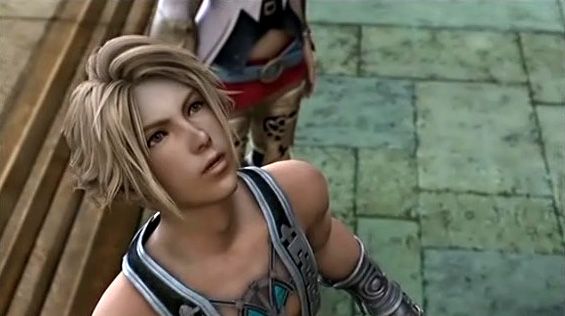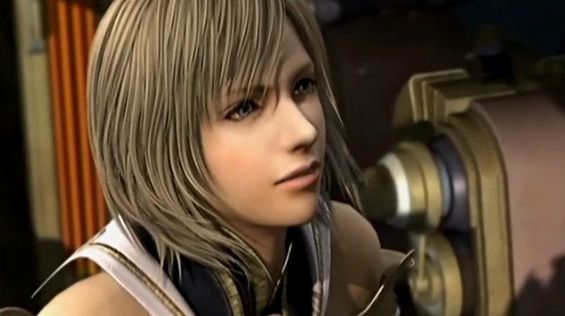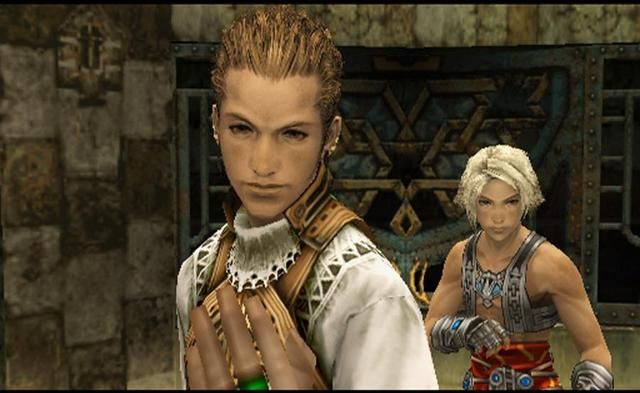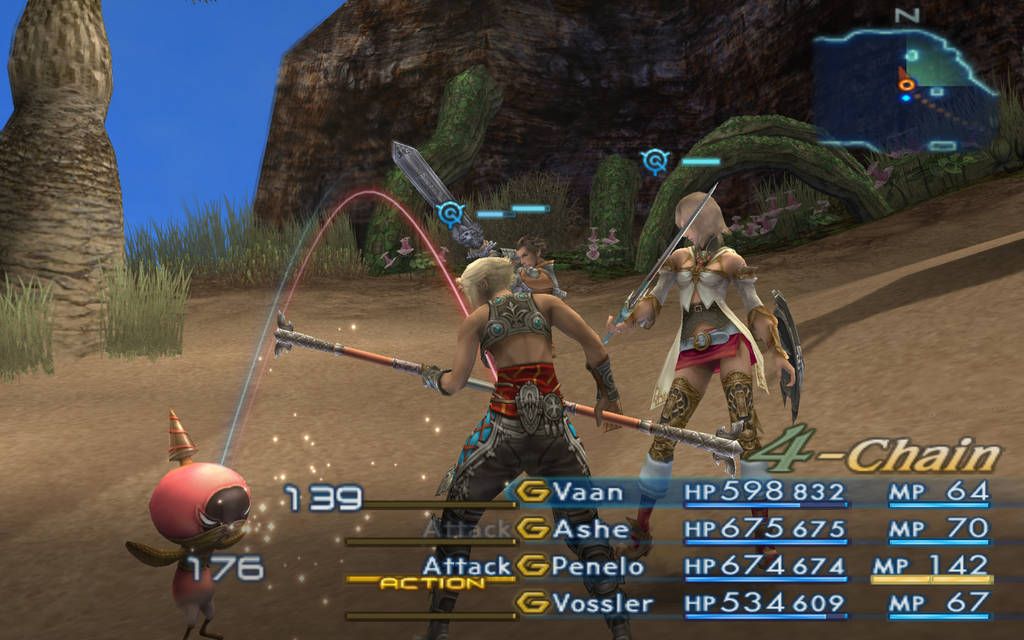You know what this month is? It’s October 2011, exactly five years since Final Fantasy XII was released in North America (October 2006). It is the one Final Fantasy title I’ve played through the least, so I recently got the urge to play through it again, so now I’m talking about it.
Some people loved it (like our awesome editor-in-chief, Yaris, and myself) the first time through. Some people (like Giuseppe) hated it. Most of the issues people had with it was related to the story and the characters, so let’s talk a little about that, to start with, shall we?
(Fair warning: There are a good number of SPOILERS in this article, and I will assume that you have played the game and are familiar with the story and characters. If not, it's been five years, what are you waiting for?)
Overall Story
I will admit, this isn’t your typical Final Fantasy story. It’s more political, more subtle, more “behind the scenes” maneuvering. What’s so bad about that? The first time I played through the game, I didn’t quite “get” it, although I really enjoyed the game overall (but more for what I will be talking about later). At the core, it’s about the old adage that states, “With great power comes great responsibility”.
Are you responsible enough to wield the power of the nethecite without letting it go to your head? Is it worth taking the risk if it’s to protect your people? Are you willing to wield the power and possibly cause more bloodshed, the fallout of which is traveling with you? These are questions Ashe must ask herself, and to be honest, they’re deeper than most people give them credit for. They are also never really explicitly defined within the scope of the story, as it leaves a lot for the player to figure out. Subtle hints are given, like Balthier’s early-game glances at the nethecite and his silent contemplation of the princess’s motives. That comes to a head once you get to the Hunter’s Camp on Phon Coast and his conversation with her there, revealing that it was this power-hungry attitude that estranged him from his father.
This is the real crux of the story, and are the huge questions raised therein. The issue, I think, was that the writers focused too much on political intrigue and not enough of the character relationships themselves, so there was some sort of disconnect between the characters and the players.
For me, I did connect in some way with certain characters, the strongest of which were Ashe, Basch and Balthier. I also believe those were the most well-defined and developed throughout the story.
The story also focused a lot on character motivations – not their personal relationships. Why are Balthier and Fran there? True, they got swept up in this thing ultimately because of Vaan, but the reason they’re there is explored throughout the story. Balthier obviously has possibly the most personal attachment to the power of the nethecite, in that his father, Doctor Cid, is being manipulated to exploit that power by the Acuria.
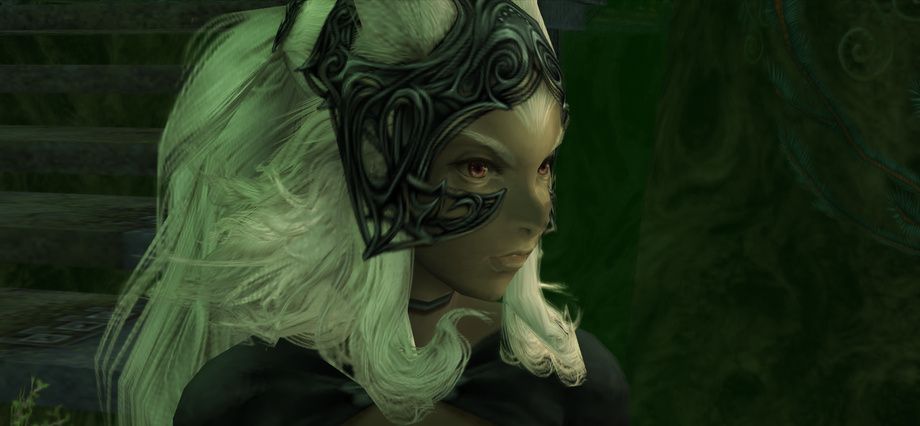
Vaan and Panelo have their own motives too, and I’m not sure I saw that the first time through. I’m wondering if this was too subtle for people to “get” it. I know I had a problem with it to start with. I think there were just many subtle nuances to the story that many people didn’t see because it wasn’t dropped on their lap like in previous Final Fantasy titles. You had to read between the lines, as it were, to get the most benefit out of the story. While I personally thought it was a welcome change in direction, ultimately that is probably why many people glossed over it altogether.
I get the distinct feeling that sometimes people don’t want to think while playing games of this type. While it’s true, there’s a time and a place for mindless gaming, but the demographic that plays JRPGs and Final Fantasy games tend to have a more refined palate, so to speak.
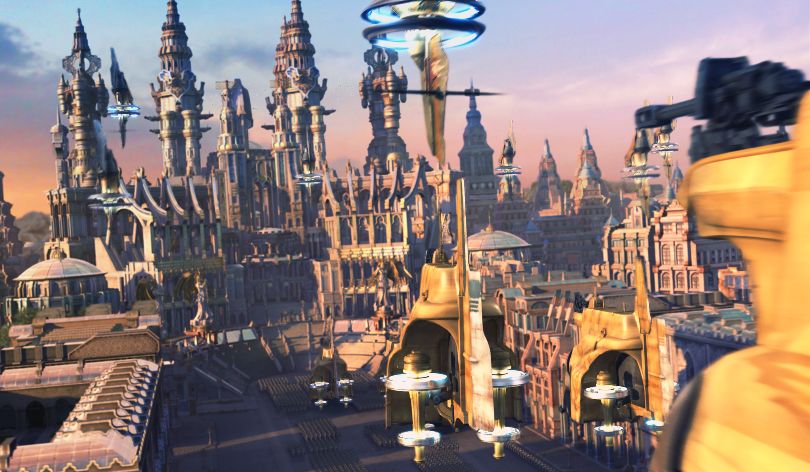
Character Motives
I talked a bit about this, but this is important because it relates to why the characters are even in the game at all. Normally this question doesn’t come up – and I’m still unsure why they made Vaan the MAIN character instead of Ashe – but in this case, there are some questionable characters and, now working on another playthrough of the game, with a separation of five years from my previous time through, I’m actually starting to see why they are all there in the first place.
Vaan is the obvious place to start, as he is the “main” character, according to SquareEnix. The problem here isn’t necessarily that he shouldn’t be there, but rather the fact that he should not have been the main character and given as much focus as he was. The story was obviously built around him from the start, because the first few hours of the game are exclusively playing with him. In fact, many of the characters get to where they are because of him – whether he realized it or not.
So, Vaan is a war orphan. His brother, Reks, was directly involved in the events that started this whole ordeal at Nalbina Fortress, which you see at the beginning of the game. I don’t think Vaan actually realized he wanted to find answers until he is introduced to Basch while escaping from prison and, again, when getting to know that “Amalia” is Princess Ashe and finding out some of her motivations a bit farther into the game.
Why is Vaan important to the story? Because he’s “normal”. He really has no ulterior motives. He’s a typical person, or as close a portrayal as could be made in a fantasy world. He’s you and me and the neighbor boy. That, in my opinion, is what the writers were going for. He’s relatable. Too many times we hear of people, whether it be second hand, or first hand from a friend, that either have friends or families involved in the many conflicts going on in the world today or, worst case scenario, have lost people to war. What was it for? Was it worth it? How does that affect life now?
Above and beyond that, we all have things in our lives that don’t make sense, where the answers are hard to find. While we might move on with our lives, thoughts still linger in the back of our minds and we want to eventually find out. It could be wondering who our biological parents are, or why your partner left you, why something happened and turned your life upside down – anything, really.
This is what I felt like this time through while paying close attention to Vaan’s story, and I actually think it makes sense and it is well worth having him involved in the story. I get why they made him the main character, because the story is sort of taking place from his eyes, even though the story directly revolves around stronger, more stand-out characters.
Moving on, Ashe really is the focal point of this story; she should have been the main character from the start. It all revolves around her quest to restore Dalmasca’s sovereignty, to protect her people and to live up to her family’s legacy. The means she goes about it is actually not really on par with your typical Final Fantasy character. Why? Because she’s indecisive. She falters. She isn’t perfect. Too many times our main characters are all noble and just, but this time around we see that raw desperation of wanting and needing to do anything she can to defend her home – even going so far as to wield the power that destroyed her life in the first place.
This isn’t bi-polar behavior, or weakness in her character – again, this is like you and I. We aren’t perfect, we falter, we are indecisive when big decisions come along. That’s part of life and I think that’s what really makes her relatable. Yes, I just said the indecision and hesitation that we feel from her throughout the entire game is a good thing.
Sometimes characters get to the point that they are so outrageously unreal that, even if the writers try to make them relatable, they just can’t be. Cloud, Lightning and other main characters have had an air of relatability, but were just too strong and almost unrealistic in the already extremely unrealistic settings in these games, that it somewhat had the opposite effect, it make the characters less real and relatable. In the case of FFXII, I think with both Ashe and Vaan, the writers succeeded in making real relatable, down to earth characters. At least, that’s the way things came across to me this second time through the game.
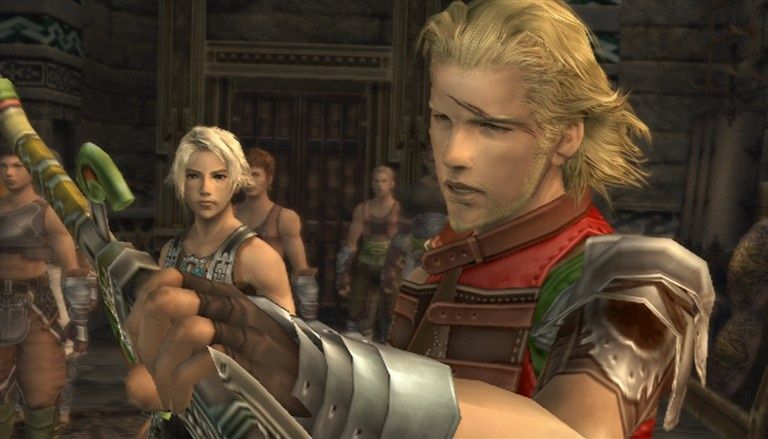
While Basch’s motivations may be obvious – he is there to protect the princess and help restore Dalmasca to the station it once held among the nations of Ivalice – I think there are some things on the side that tend to get glossed over, as well. His brother directly betrayed him, and, even if he may not directly say it, I get the distinct feeling that there’s a little glimmer of wanting to get revenge for framing him in the first place.
Batheir is very obvious. While, at first, he’s drawn into this whole deal because of Vaan in the palace in Rabanastre, once he realizes nethecite is involved, this is his primary motive, even though he tries playing it off as just wanting to go where the treasure is. His father, the infamous Doctor Cid, has been in contact with the Acuria and basically gave up everything else in his life in pursuit of the power of the nethecite – whether it be the real kind or the manufactured variety. As we move farther and father in the story, this becomes a more and more aggressive motivation, especially later in the game after the events at Draklor Laboratory.
His partner, Fran, is less cut and dry. In fact, both her and Penelo seem to have the least motivation to be there at all. We do see some of Fran’s story early on, and she certainly has an attachment to the “mist”, which is a story point throughout the game. However, she seems to be there just to back up Balthier and to give out cryptic, vague lines of dialog at each major set of story cut scenes. And, of course, Penelo is there because she likes Vaan for some unfathomable reason. I can find no other reason for her to be there other than to help Vaan see his quest for the truth to its conclusion.
Ultimately, at least one character that people wonder about the most – Vaan – really has one of the biggest motivations to be in this story (although not enough to be the main character). I do understand people’s abhorrence of him, because I once had it, as well. He is kind of whiny and bratty, especially toward the beginning of the game, but as his motivations start opening up to us, I see him as a more intense and personable character than some others.
Game Mechanics
Whatever you think about the story or characters, as a Final Fantasy fan, you have to admit that the layout and game mechanics are where FFXII really shines. As far as these things go, this is almost a perfect game for RPG fans, and here’s a few reasons why.
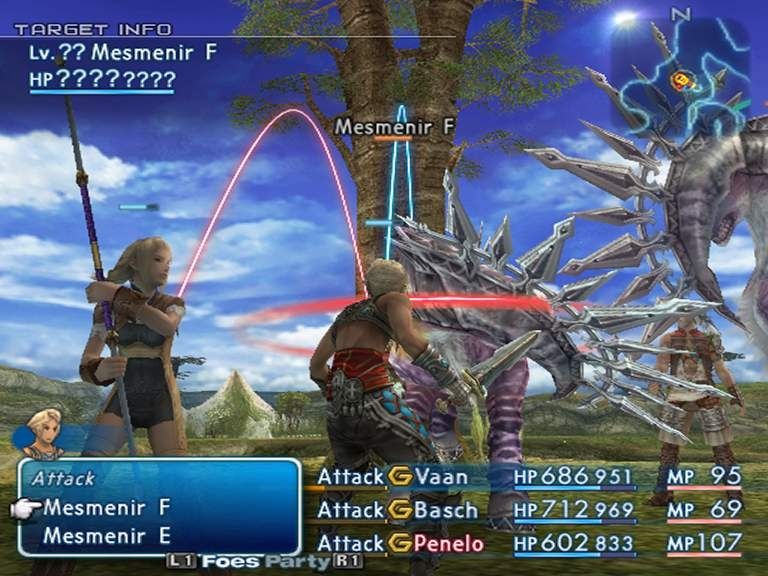
- Area layout and freedom: The way the areas in the game are designed, along with their relationship to the story, is brilliant. At every point in the game – even early on – you’re presented with vast landscapes to explore outside the realm of any story-related triggers. There are areas in the Dalmasca Eastersand that are available right from the first time you can take Vaan outside the walls of Rabanastre that you can explore that have nothing to do with story progression. Huge sections of zones from then on out (usually outdoor zones) are open to exploration and aren’t even related to any story triggers at all. These are likely later used for side quests, monster hunts or the like, but some aren’t even used for that. They’re just THERE for exploration purposes. Also, at every step of the way throughout the game – aside from a few short instances where you’re stuck somewhere until you clear it – you’re presented with complete and total freedom and a wide variety of things to do, see and places to explore.
- Side-questing: Along with the way the areas are designed, there’s a huge selection of side quests, even above and beyond the main hunting quests (of which there are already three different kinds). While side-quests themselves aren’t available from the very beginning of the game, it isn’t too long after that when you can start tackling some, and then after each major story trigger thereafter, many more become available. There’s always something to do aside from the main story.
- Battle mechanics, license grid and gambits: This may be questionable to some – especially the gambits – but I found the battles to be quite refreshing. They have a feeling of an MMO battle system, which other games tried and failed to implement correctly after FFXII had been out for a bit. It just feels good, whether you want to use gambits to the extreme or not. Gambits are there to use or not to use. In fact, I actually tried a couple boss battles without them and things flowed fairly nicely, albeit a bit slower, because it takes time to doll out commands to each character. So, the wide variety of ways to play is gratifying, to say the least.
I feel, overall, even moreso than I did back when I initially played Final Fantasy XII, that this game, as far as the production design, gameplay layout and mechanics and how the overall world works with the story to give the player an almost insane amount of freedom to explore and side quest at almost every part of the game goes, that this is a darn near perfect Final Fantasy title. Granted, the story could have been bolstered in various parts - the main villain being one - however I do feel that the majority of the characters are great when you delve deep down into their motivations, really think about it and perform more than a cursory glance at how they act and their stories play out through the course of the adventure.
Also, more than I did when I initially played Final Fantasy XIII (yes, the latest one), I feel I miss everything that made the previous games great, and am even more looking forward to the sequel, as it promises to deliver a much more open and familiar experience. But it's unlikely that things will be as great as they were in FFXII.

